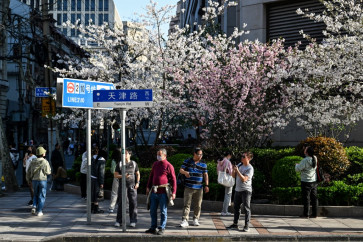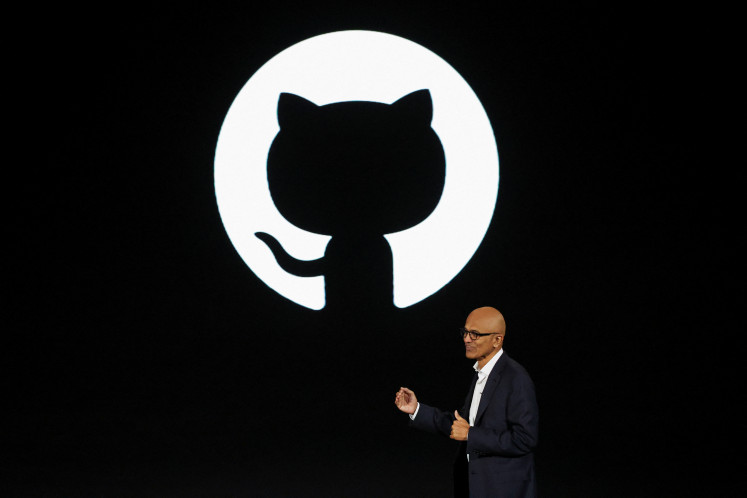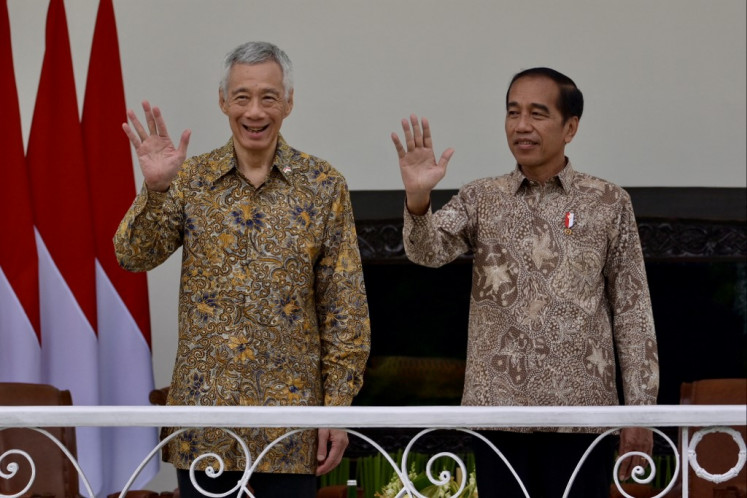MasterCard invests in digital marketing in Asia Pacific
MasterCard, a technology company in the global payments industry, continues to expand, with its latest initiatives including a plan to invest US$10 million in digital marketing in Asia Pacific over the next three years to take advantage of fast-growing Internet-based business in the region
Change Size

M
asterCard, a technology company in the global payments industry, continues to expand, with its latest initiatives including a plan to invest US$10 million in digital marketing in Asia Pacific over the next three years to take advantage of fast-growing Internet-based business in the region.
The increased investments by MasterCard are part of its commitment to working with banks and merchants in the region to understand consumer needs and wants and to match them with quality and timely offers.
MasterCard's senior vice president and group head for Marketing, Asia Pacific, Sam Ahmed, unveiled the company's planned investment in a press conference in conjunction with the MasterCard Innovation Forum held in Singapore from Sept. 24 to 25.
According to him, the investment will be earmarked for, among other things, building technology and hiring the right people, which will enable data to drive transactions. 'We also invest in the right media to drive the message to the right areas and we are really using insight to know how to make the right business decisions with that insight and to use the money to build content,' he explained.
Priceless engine
During the forum, MasterCard launched its 'Priceless Engine' - an innovative new platform for marketing that allows the brand to provide its bank partners with the deep insights that help them deliver the right offers to their customers at the right time.
The Priceless Engine will see MasterCard leverage its depth of analytic capabilities to help its partner banks understand consumer sentiment and trends based on social conversations, track engagement and transactions on campaigns to translate these findings into meaningful feedback, create and share content across borders to increase scale and finally analyze data in real-time.
The robustness of the four-part process comes from the fact that it allows the team to identify and address barriers, or make adjustments in real-time.
'Innovation is crucial to staying relevant in this swiftly evolving digital age and the MasterCard Priceless Engine will be the cornerstone in the payments ecosystem, connecting issuers, merchants and consumers. As MasterCard research shows, the transaction is where social and digital engagement happens and having the right offers, the right data, the right assets and the right content at the right time will create a behavioral change with the consumer,' said Sam Ahmed.
'Asia is fast exceeding the rest of the world in Internet and social media usage, with one out of every two social media users globally residing in the region. Given this exponential growth in social media, digital marketing can no longer just be about communication or engagement. MasterCard's Priceless Engine now has the ability to drive brand differentiation and significant revenue growth for our partners,' he noted.
Issuers (partner banks), partner merchants and MasterCard will generate benefits from the Priceless Engine, according to Ahmed.
'Being closer to consumers is one of the benefits. In this way we will understand their needs, know the contents that consumers want and do not want straightaway,' he said.
In the context of Indonesia, for example, issuers (banks) understand that many Indonesians fly to Singapore for holidays or for medical treatment, which is a growing area. But they do not have advertising budgets or office contacts in Singapore. So, with the Priceless Engine, we can bring the right office and medical contact to make sure they have what they need when they come to Singapore,' he said, giving an example of the benefits that partner banks could gain from the facility.
'The Priceless Engine does give us the model with which we can listen to the consumers and also publish the right content at the right time,'
'To ensure the Priceless Engine has global scale and reach, MasterCard will be working closely with key partners in the social media space, including Facebook,' he said.
These partnerships will give consumers in the region unprecedented access to the most relevant, timely and quality offers, according to Ahmed.
Ahmed highlighted market potential for electronic commerce (e-commerce) in Indonesia, saying that Indonesia is viewed as an important market globally.
Despite low Internet penetration, compared to Singapore, Indonesia is in the top three in the world in terms of being active in utilizing Facebook.
Indonesians are socially active in using Internet. 'They are engaged; they love conversation '¦and they want to be entertained. And so, if you put those things together and you look at the business impact, the size of Indonesia '¦it's going to be extremely powerful (in terms of e-commerce).
'Also we find Indonesia is extremely important because of the growth of mobile phones. Internet penetration is coming from mobile phones. They have jumped from having to go to an Internet café straight to mobile phones,' he pointed out, adding, 'They no longer need home computers. This transformation has driven business changes. E-commerce grows on mobile.
'E-commerce is going to be a significant part (of business) in the next five or 10 years in Indonesia,' he predicted.
A survey on online shopping recently conducted by MasterCard found that 94 percent of Indonesian people were able to access the Internet from their mobile phones (up by 5 percent since 2011).
The survey also showed that 46.7 percent of individuals who can access the Internet on their phones made purchases through their mobile phones (up by 18.1 percent since 2011).
'The main reason to do online shopping with mobile devices is that they can do it on the go (49.1 percent), followed by the convenience mobile phones have (37.6 percent),' the survey said. (Sudibyo M. Wiradji)









